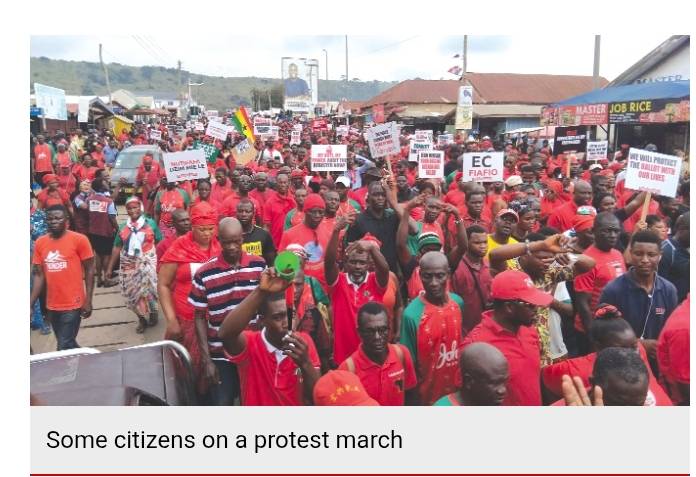In further analysis of the just-released 2024 Corruption Perception Index scores, I noticed significant differences in average scores across different types of civic spaces.
Since 2018, CIVICUS, a global alliance of civil society, has been monitoring the civic spaces of countries around the world.
The monitor classifies the civic space of countries into five categories – closed, repressed, obstructed, narrowed and open.
The full definitions of each civic space typology and the methodology used can be found here (https://civicus.org).
The average scores across civic spaces differ as follows: closed (29); repressed (31); obstructed (38); narrowed (51); and open (70).
Essentially, the more open a country’s civic space, the better it can fight corruption. As CIVICUS states “When civic space is open, citizens and civil society organisations are able to organise, participate and communicate without hindrance.â€
How does this help in the fight against corruption? It simply means citizens can organise and participate in various anti-corruption activities such as protests, community meetings, forums, etc.
It also means that citizens can activate their voices and freely speak or write about the issue of corruption while also strongly advocating anti-corruption measures.
One thing is key – citizens must be able to do this without the State erecting barriers and making it nearly impossible for anti-corruption activities to thrive.
The Case of Ghana
As I recently wrote about Ghana’s score on the Corruption Perception Index, three things are clear.
First, the country’s score remains unchanged in any significant way over the last five years.
Second, and more importantly, there has been no significant change since 2012.
Third, is the change in Ghana’s global ranking which brings us back to the 2018 level.
The ten-spot drop (2023 vs 2024) in rank reinforces the point; the lack of real progress in our fight against corruption.
The condition of civic space may offer some explanation in our lack of progress in fighting corruption.
What does the CIVICUS monitor say about Ghana’s civic space?
Since its inception here is how the country has been rated: Narrowed (2018, 2019, 2020, 2021); and Obstructed (2022, 2023, 2024).
If you look at this period, other governance indices reinforce the ratings of CIVICUS.
For example, here are some key observations from the Ibrahim Index of African Governance.
Between 2014 and 2023, here is how much Ghana’s score dropped in areas related to the work of civil society in our civic spaces – a) Absence of Harassment of Civil Society (-25); b) Civil Society Consultation (-8); and c) Absence of Civil Society Repression (-16).
Over the same period, as per findings from the Afrobarometer survey, when asked “In your opinion, how often, in this country:
Do people have to be careful of what they say about politics?†here is the percentage of Ghanaians who answered “often/always†– 71 per cent (2019) and 67 per cent (2022).
In fact, if you compare the first time the question was asked (2002) to the last time (2022), the percentage of Ghanaians answering “often/always†has increased significantly by 30 percentage points.
Again, when Afrobarometer asked “In this country, how free are you to say what you think†the percentage of Ghanaians answering “completely free†looked like this over the period under consideration – 71 per cent (2019); 63 per cent (2022); and 59 per cent (2024).
Notice the significant drop of 12 percentage points between 2019 and 2024.
Lastly, when asked “in your opinion, how free is the news media in this country to report and comment on the news without censorship or interference by the government?†30 per cent (2022) and 29 per cent (2024) respectively answered “completely free.â€
Against the backdrop of the condition of our civic space, it should come as no surprise that the percentage of Ghanaians saying the level of corruption has “increased a lot†jumped from 20 per cent (Afrobarometer Round 7, 2017) to 69 per cent (Afrobarometer Round 9, 2022) before dropping to 63 per cent (Afrobarometer Round 10, 2024).
Still, between 2017 and 2024, there has been a significant 43 percentage point increase in Ghanaians who say the level of corruption has “increased a lot.â€
Also, over the same period, the fight against corruption has been rated low – 39 per cent (2019), 14 per cent (2022) and 15 per cent (2024) saying in Afrobarometer that government is handling corruption “fairly well/very well.â€
A strong and vibrant civic space is critical to a successful fight against corruption.
The State must therefore create conditions that allow Ghana’s civic space to thrive where civil society actors and other activists can engage in anti-corruption advocacy efforts without impediments.
I have also said in the past that the burdens placed on active citizenship does not only come from The State but from some of our own fellow citizens who are sometimes driven by partisanship.
To win this fight against corruption let’s pay attention to our civic spaces too.
The writer is the Project Director, Democracy Project


